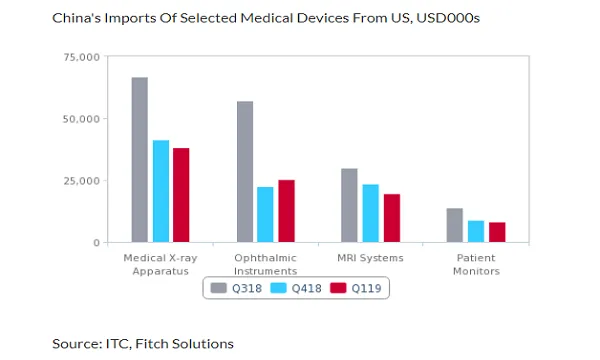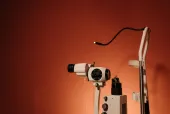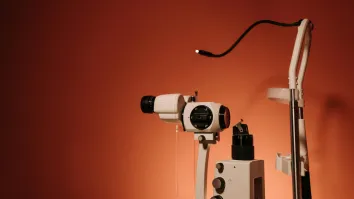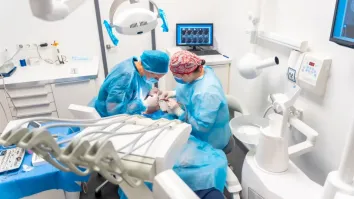
China's medical device imports to continue slump in 2019-2020
The 25% hike imposed in 2018 have resulted in a sharp fall in imports of MRI systems, X-ray apparatus, patient monitors and ophthalmic instruments from the US.
China’s medical device imports are forecasted to fall further in 2019 and 2020 following an up to 25% tariff hike by China, effective since 1 June, a report by Fitch Solutions revealed.
The hike was in response to the US decision to hike tariffs from 10% to 25% on $200b worth of Chinese goods on 10 May. This is expected to impact market growth as nearly a third of Chinese medical device imports are from the US, Fitch Solutions noted.
“We highlight that the 25% tariffs imposed in 2018 have resulted in a sharp fall in imports of MRI systems, X-ray apparatus, patient monitors and ophthalmic instruments from the US,” the firm highlighted.
That said, the hardened stance of the US Administration will provide an additional boost to China’s import substitution drive, and therefore Fitch Solutions believes that Chinese medical device producers will be the main winners from the escalating trade tensions.
“Leading domestic producers reported revenue gains in excess of 20% in 2018. China will also use non-tariff barriers such as procurement and investment restrictions to accelerate import substitution,” the firm explained.
Meanwhile, medical device forecasts for Hong Kong, India, Singapore, South Korea, Taiwan and Thailand have been revised down due to economic pressures arising from greater external headwinds, which Fitch Solutions noted will directly weigh on exports and have negative spill-over effects on investment and private consumption in the sector.



















 Advertise
Advertise






